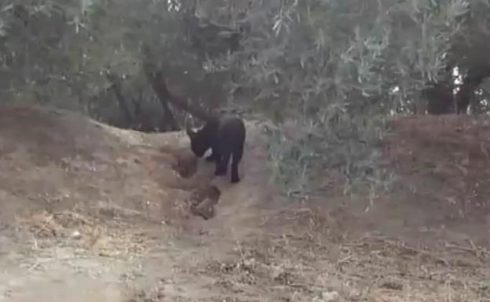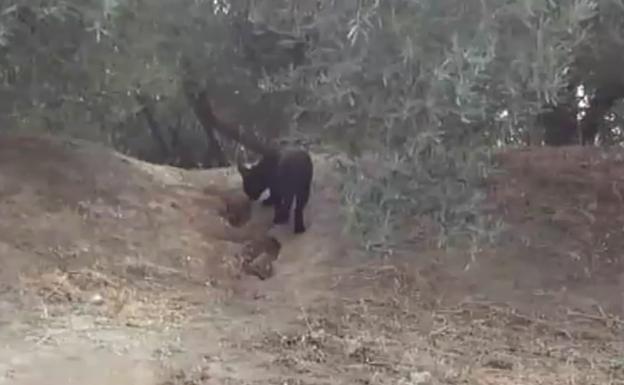THE search for the elusive black panther in Spain’s Granada has not only put the sleepy villages of Escuzar and Ventas de Huelma in the spotlight, but ignited all kinds of theories about the big cat’s origin.
The most plausible theory is that it is privately owned and has recently escaped from a home or domesticated environment.
The latest witness to have seen the animal said that when the feline became aware of human presence it jumped three times before disappearing.
A panther, like other wild predators, can only be tamed within limits. It does not belong in an environment which restricts its natural needs to run, climb and hunt.

Owning an exotic cat, apart from running into complex legalities, would also run up some hefty maintenance bills leading to the belief that the possible owner is a wealthy drug lord or a tycoon, possibly based in Malaga.
It is believed that the animal could have entered the Granada province from Malaga through Zafarraya.
What is clear to the authorities is that the animal lived clandestinely because no one has yet claimed ownership.
This is not the first time a black panther has been rescued from the hands of a drug lord in Andalucia.
In 2016 a black panther, found to be lacking all documentation of the International Convention on Endangered Species of Wild Fauna and Flora and originally from the zoo of Arboleas, was retrieved and its owner arrested for drug smuggling offences.
The Guardia Civil has been looking for the wild animal sighted in Granada since September 12, after the Town Hall of Ventas de Huelma raised the alarm about the possible viewing of a panther in the area.
Helicopter and thermal cameras have since been used in the search for the elusive big cat, which is so far living up to its name of being ‘the ghost of the forest’.
The black panther is a smart, stealth-like attacker, whose dark coat helps it hide and stalk prey very easily, especially at night. They have good hearing, extremely good eyesight, and a strong jaw.
However, attacks on humans are rare, as they do not generally recognise humans as prey, only attacking if they feel threatened.











